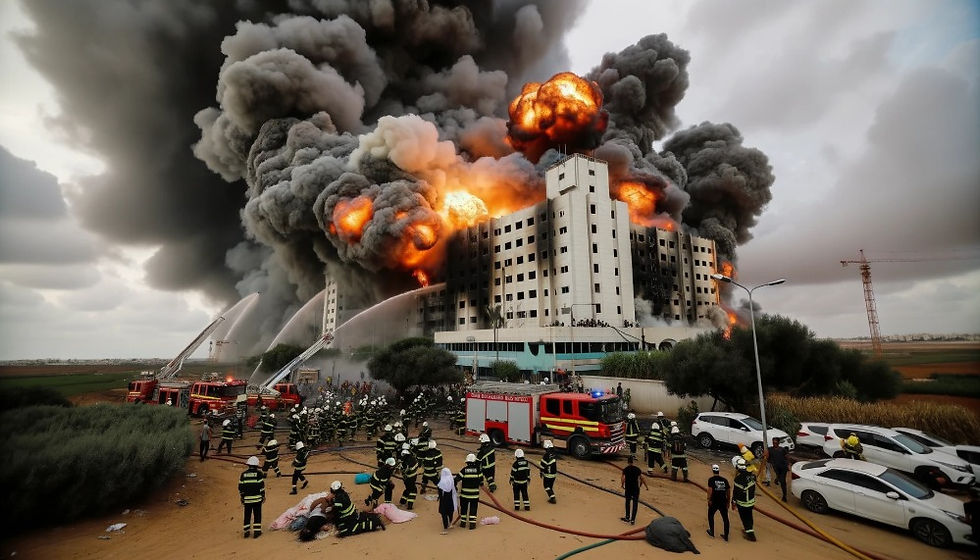Audio Appears to Show Terrorists Admitting Guilt in Gaza Hospital Blast
- A.Weishaupt

- Oct 18, 2023
- 2 min read

Recent audio evidence has raised fresh questions and ignited debates on the responsibility for a blast that occurred at a Gaza hospital. Traditionally, whenever Israel makes a strike, it leaves a crater - a hole in the ground - at the site of impact. However, in this instance, there was no such crater; instead, there was a fire, suggesting that the explosion was potentially a misfire from Gaza itself.
Evidence supporting this claim was presented in a phone call between two Hamas members, in which they seemingly admit culpability. One of the parties says, "We did this." This admission challenges the prevailing narrative that Israel was behind the attack.
Jacqui, a spokesperson for Benjamin Netanyahu, expressed gratitude to Fox News for allowing the presentation of significant voices, which often seem to be drowned out amidst the cacophony of competing narratives. She emphasized the importance of President Biden's remarks during a sit-down with Prime Minister Netanyahu. President Biden clarified that Israel wasn't responsible for the strike on the hospital. Instead, it was an act committed by the Islamic Jihad, based on the data and evidence presented to him.
Further highlighting the gravity of the situation, it was revealed that there were 450 missiles fired by terrorist organizations during this conflict, which fell short in the Gaza Strip.
As is always the case with such situations, separating fact from propaganda is of paramount importance. According to the Israeli spokesperson, information, footage, or numbers originating from the Hamas-controlled Gaza Strip should be treated skeptically. Drawing a comparison, she noted it would be akin to trusting data from North Korea. Israel has consistently asserted its commitment to releasing only verified information, with the spokesperson underscoring the importance of questioning the credibility of sources associated with or controlled by Hamas.
Intriguingly, during the President's visit, the possibility of a ground invasion was touched upon, prompting questions about the strategy moving forward, especially with potential threats from the north. The President's presence in the middle of the conflict was seen as a significant gesture, sending a clear message to Hamas and other adversaries in the region, including Iran or Hezbollah.
Lastly, criticism directed at Israel about the Rafah crossing was addressed. It's essential to note that the Rafah border crossing is a border between the Gaza Strip and Egypt and is not under Israeli control. However, recent attempts to open the border for foreign nationals were thwarted by Hamas, who reportedly blocked the exit.
This unfolding situation only reinforces the complexity of the ongoing conflict in the Middle East. The recently revealed audio evidence serves as a stark reminder that narratives can change as new information emerges, highlighting the importance of relying on verified and credible sources.




Comments